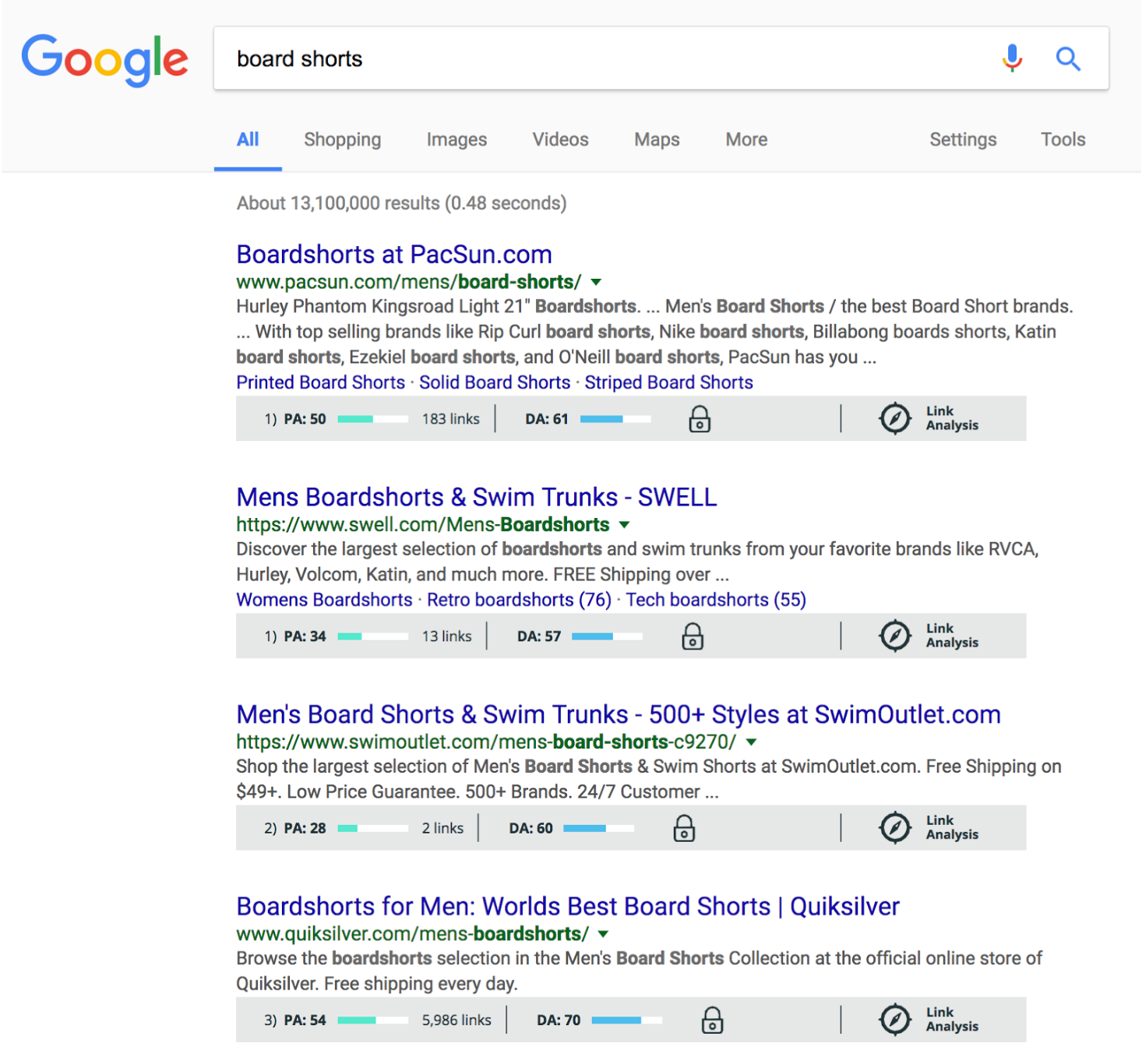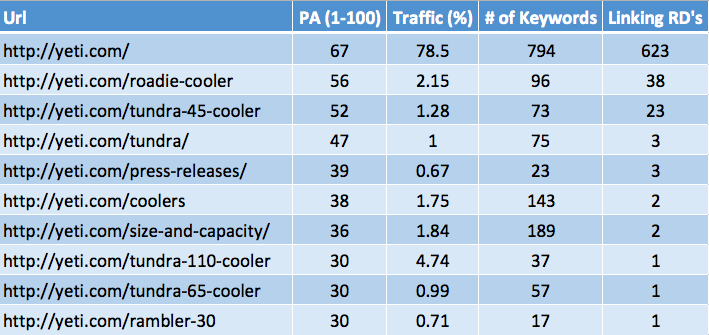
Domain Authority
Domain Authority is an important metric to look at when assessing a site’s ranking potential. A website’s domain is given a number from 1-100; 1 being your neighbor’s cat blog and 100 being the New York Times. These scores are not given by search engines directly, but are calculated through Moz’s algorithm scoring engine that uses the best information to date about ranking factors and off-domain impact. The goal of any long term SEO strategy is to increase domain authority in order to rank for more keywords and improve current positions
Page Authority
Page Authority is very similar, this metric determines the strength, and ranking power of a specific page on a site, not the overall domain. A comprehensive SEO strategy should look at building the domain authority for the site as a whole AND the page authority for priority pages with the most ranking potential.
How are These Metrics Useful?
Most use these authority metrics to see if there is potential to rank for a specific keyword. Moz created a cool extension called the MozBar that enables you to analyze your competition’s domain and page authority directly on the search engine results. The insights gained from these authority metrics inform how likely you’d be able to rank for specific terms – if all else were equal. If page 1 is covered with domains and page authorities in the 40’s, that’s a good gauge of where you need to be to compete.
Below are the top 4 organic results for the search “board shorts”. Let’s say you were a relatively new surfwear brand with a low domain authority of 30. No matter how well you optimize your board shorts page, you probably won’t be able to break into the 1st page of results anytime soon. The 1st page is owned by big retailers like Swell and popular brands like Quiksilver, all with DA’s around 60 or higher. The MozBar quickly lets you know where you stand.

How to Build Authority the Right Way…
It’s pretty typical for the homepage of any site to attract the most links. This leads to the homepage having a relatively high page authority compared to other pages on the site. Yes, the homepage will be able to rank well for your brand and maybe a few other terms it’s optimized for, but that link juice is better served pointing to a variety of other important pages across your site. The homepage simply can’t rank for every keyword relevant to all of your products or services.
1. Deep Linking
One strategy to build page authority is through deep linking. Obtaining popular and relevant links that point to your important service or product pages can significantly boost the authority of a single page. This strategy builds page authority, which in turn also increases domain authority. A WIN-WIN! Beyond deep linking’s impact on SEO, providing a link directly to the page being referenced to creates a low bounce rate for users who end up right where they want to be.
2. Site Structure/Internal Linking
A way to properly spread the link juice from your homepage to the rest of the pages on your site is to have a solid site architecture and an internal linking system. Important pages that you are trying to rank for shouldn’t be buried deep in your site. They should be only a click or two away from the top. As a site divides out its authority, you want your important pages at the front of the line. Regarding internal linking, this further helps to spread link juice throughout the website. For example, maybe one of your blog posts references a main service you offer. Make sure to link to that service page in the copy of the blog post! Always look to create internal links where they make sense and authority will follow.
Examples:
Does Moz, the SEO software company, practice what they preach? Let’s dissect their top 10 ranking pages.

The first thing I note is that their homepage is only bringing in 9% of organic traffic. This means a majority of the sites traffic is coming from all the other pages on the site. This rarely happens, but is something every SEO strategy should strive for. In the table, it’s easy to see the correlation between page authority and traffic, but let’s break it down. As the number of linking root domains increase, so does page authority. The higher the page authority, the more keywords this page will rank for, leading to more traffic. Simple as that.
Let’s look at a company on the other end of the spectrum, with most of the external links going to the homepage. Remember, when this happens, it only contributes to a higher page authority for the homepage, with a minimal effect on other pages from the small overall boost in domain authority.

Yeti, a premium cooler manufacturing company, illustrates this position well. Their homepage (PA – 67) is estimated to be driving 78% of all of its traffic from search engines. Their coolers page (PA – 38), which is their main product category, is only driving about 2% of the organic traffic. With such a low page authority, their most important page is struggling to drive much traffic at all.
In Conclusion
Its pretty common for small businesses, who might not have a lot of help on the SEO side, to suffer from this problem. Complimenting a link building campaign with a solid site architecture and internal linking system will increase page authority for your site’s most important pages. You’ll be able to rank in better positions for a wider variety of keywords, leading to more traffic, resulting in more revenue for your business.
